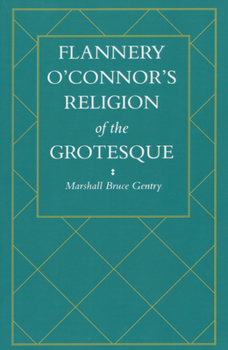Flannery O'Connor's Religion of the Grotesque
Select Format
Select Condition 
Book Overview
This assessment of a major southern writer's work offers a revisionist view of her characters, who in the past twenty-five years of critical attention too often and too easily have been labeled grotesque. O'Connor's stories and novels are usually considered mere dramatizations of her stated orthodox religious commitments. According to the predominant view, the typical O'Connor work consists of a set of corrupt characters and an authoritative narrator who analyzes their theological errors. When redemption occurs, according to this view, it results from forces outside the character and against that character's will. Although such a reading adequately describes a few works, it misunderstands O'Connor's general handling of narration and of characterization. Marshall Bruce Gentry proposes new positions on O'Connor's narration and on the role of the grotesque in her characterization. By investigating the nature of religious experience in her works, he concludes that O'Connor's primary interest is redemption achieved by grotesque and unconscious means. Often in O'Connor's works, redemption becomes a moment of freedom in a continuing process of degradation and reformation. The real focus of O'Connor's fiction is the grotesque path toward redemption. As Gentry points out, by sending themselves toward physical annihilation, her characters typically take control of their redemption.
Format:Paperback
Language:English
ISBN:1578068657
ISBN13:9781578068654
Release Date:January 1986
Publisher:University Press of Mississippi
Length:188 Pages
Weight:0.70 lbs.
Dimensions:0.4" x 6.0" x 9.0"
Customer Reviews
0 rating





